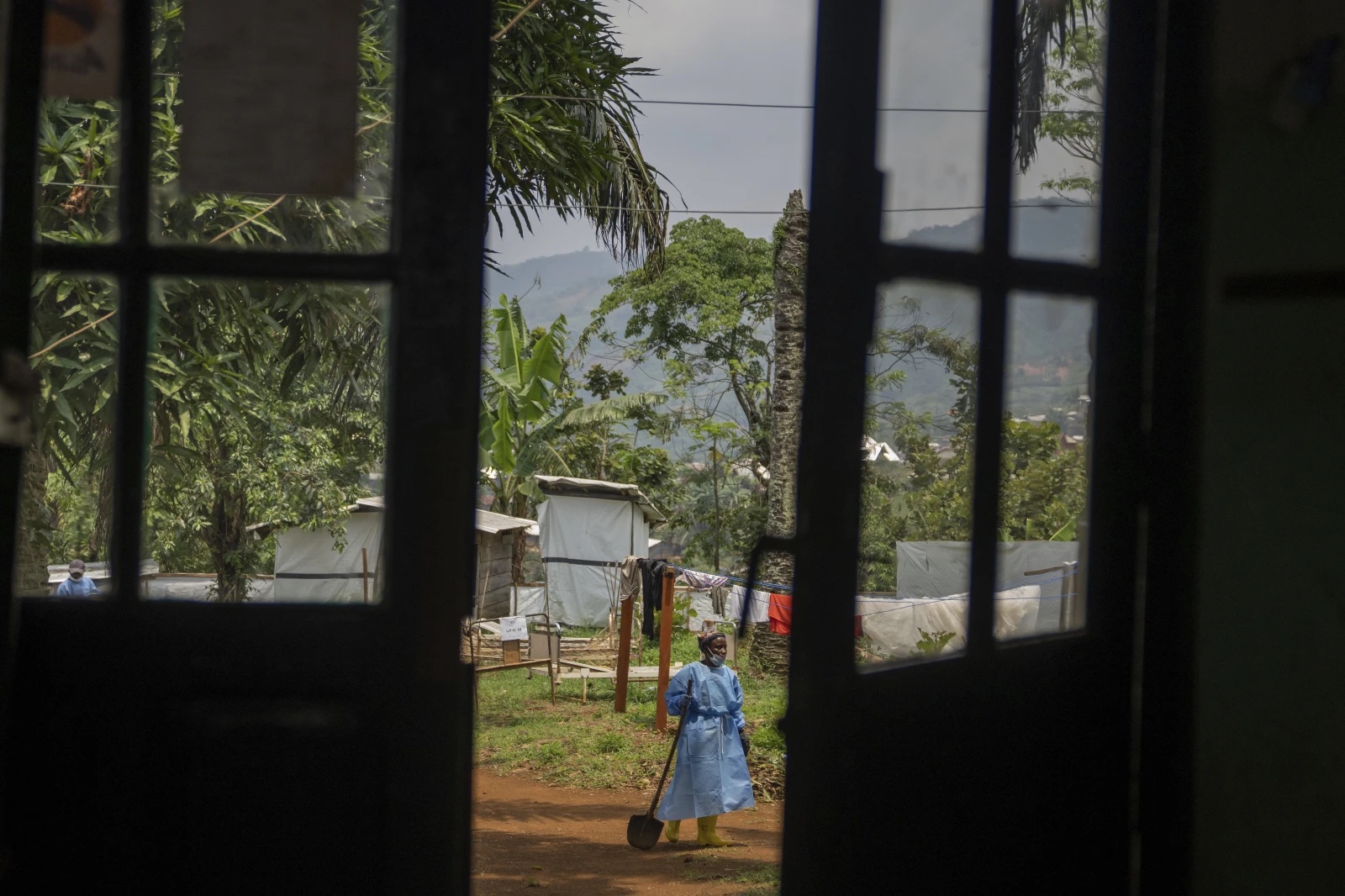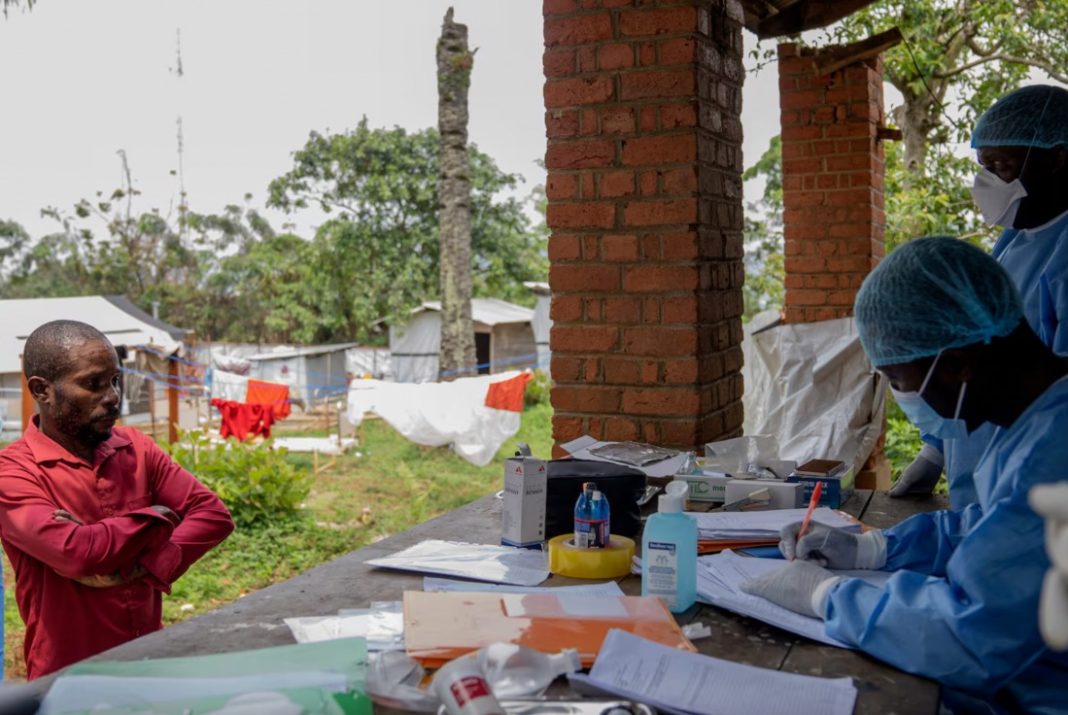KAMITUGA, Congo — Divine Wisoba knelt over her daughter’s grave in Kamituga, a bustling gold mining town in eastern Congo, her hands gently pulling weeds from the soil.
Her 1-month-old daughter, Maombi Katengey, had succumbed to mpox in August. Wisoba, 21, was too distraught to attend the funeral but visited for the first time this week.
“When she was born, it was as if God had answered our prayers — we wanted a girl,” Wisoba told the Associated Press tearfully. “But our biggest joy was transformed into devastation.”
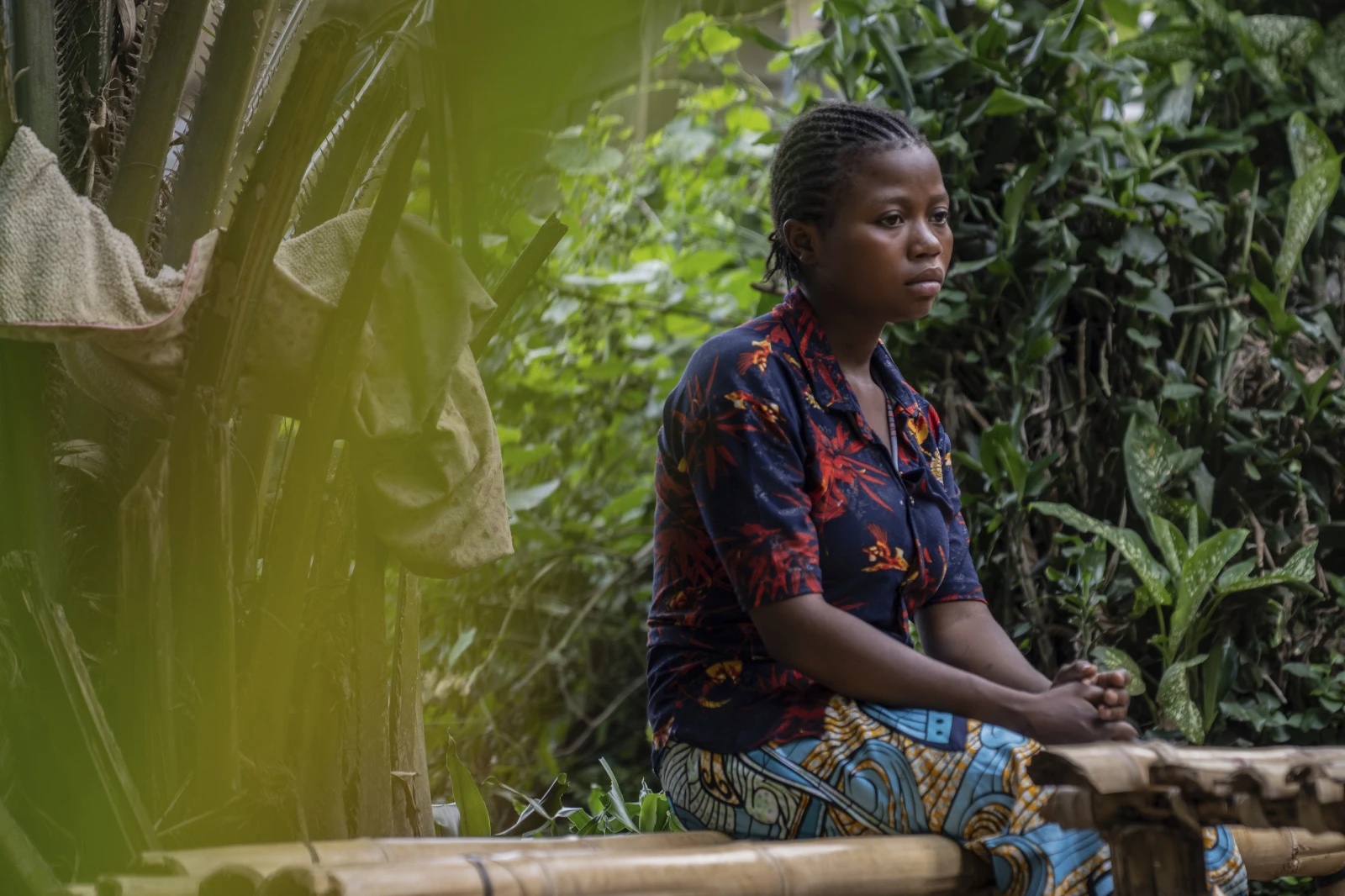
Maombi is one of the over 6,000 suspected cases in South Kivu province, the epicenter of the world’s latest mpox outbreak.
The World Health Organization has declared the situation a global health emergency as the virus continues to spread, largely through skin-to-skin contact, including but not limited to sexual activity.
The outbreak has overwhelmed Congo’s health infrastructure, with medical experts citing a lack of vaccines, funding, and awareness as critical challenges.
Health officials in Kamituga, home to nearly 300,000 people, say the outbreak has claimed eight lives — half of them children — since it began last year.
Nearly 1,000 people have been infected in the town, a magnet for miners, sex workers, and traders.
“People simply don’t have enough information about mpox,” said Wisoba.
She explained that she first contracted the disease, suffering painful lesions that made walking difficult, but she did not recognise the symptoms. Only after her daughter was diagnosed did she realise the severity of the virus.
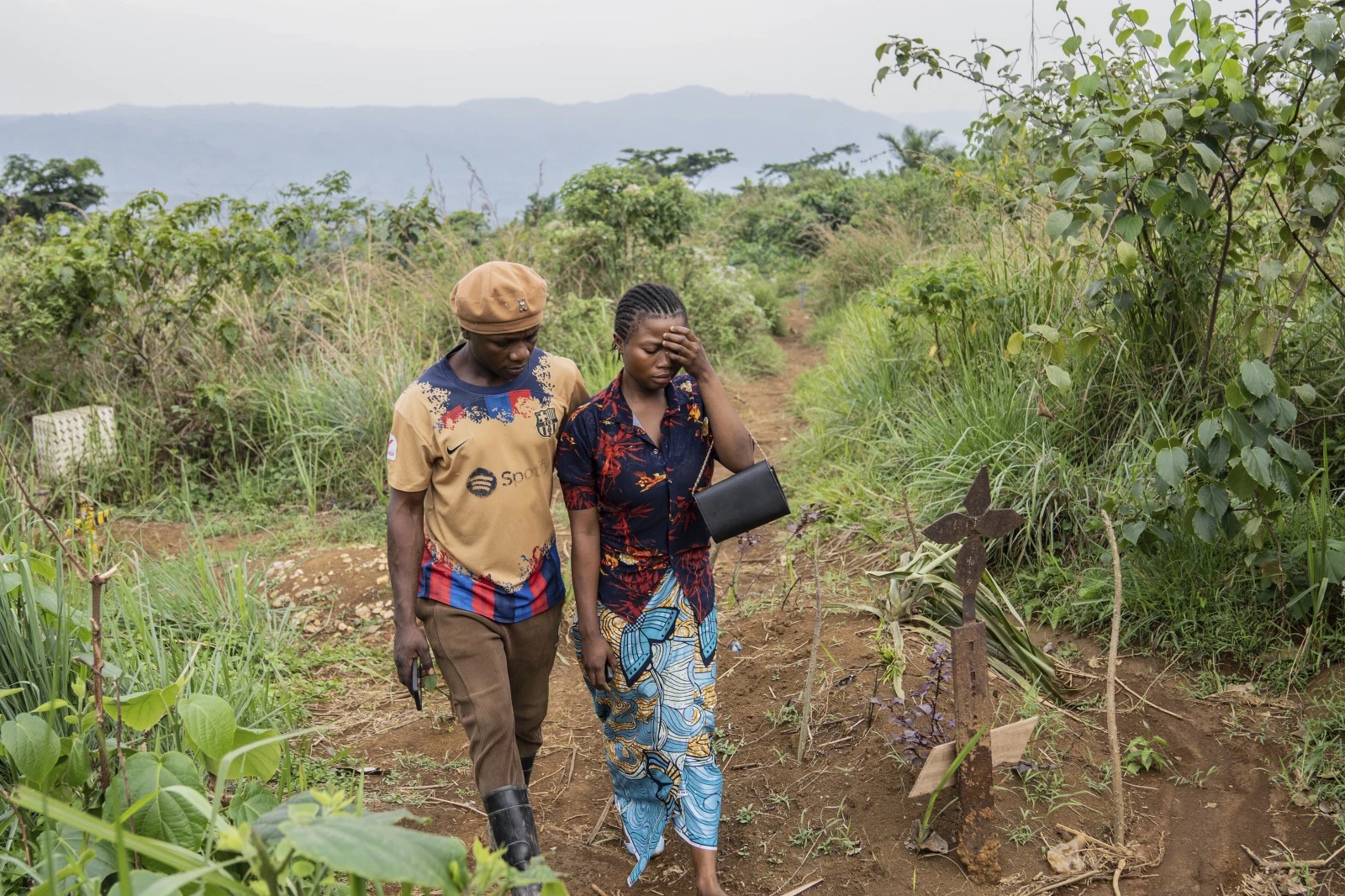
Painful lesions and fever are common symptoms of mpox, which had largely gone unnoticed in Africa until a global outbreak last year.
In South Kivu, however, the virus is taking a particularly deadly toll on children, pregnant women, and vulnerable populations.
Local health officials report that suspected cases have surged weekly from about 12 in January to 600 in August.
Kamituga’s general hospital, which serves as the main treatment center, is frequently near capacity. Yet, due to the province’s remoteness and transient population, many cases are likely unreported.
“We have a daily average of five new cases,” said Dr. Steven Bilembo of Kamituga General Hospital. He added that access to vaccines could make a significant difference in preventing further deaths.
Health workers are urging the government to step up public education efforts, particularly in rural and hard-to-reach areas.
Community leader Kasindi Mwenyelwata goes door-to-door explaining how to detect mpox symptoms, but he lacks the necessary materials, such as posters with images of patients.
“Pictures are more powerful than words,” Mwenyelwata said.
While the Congolese government has allocated $190 million for its initial mpox response, including the purchase of 3 million vaccine doses, just 250,000 have arrived so far.
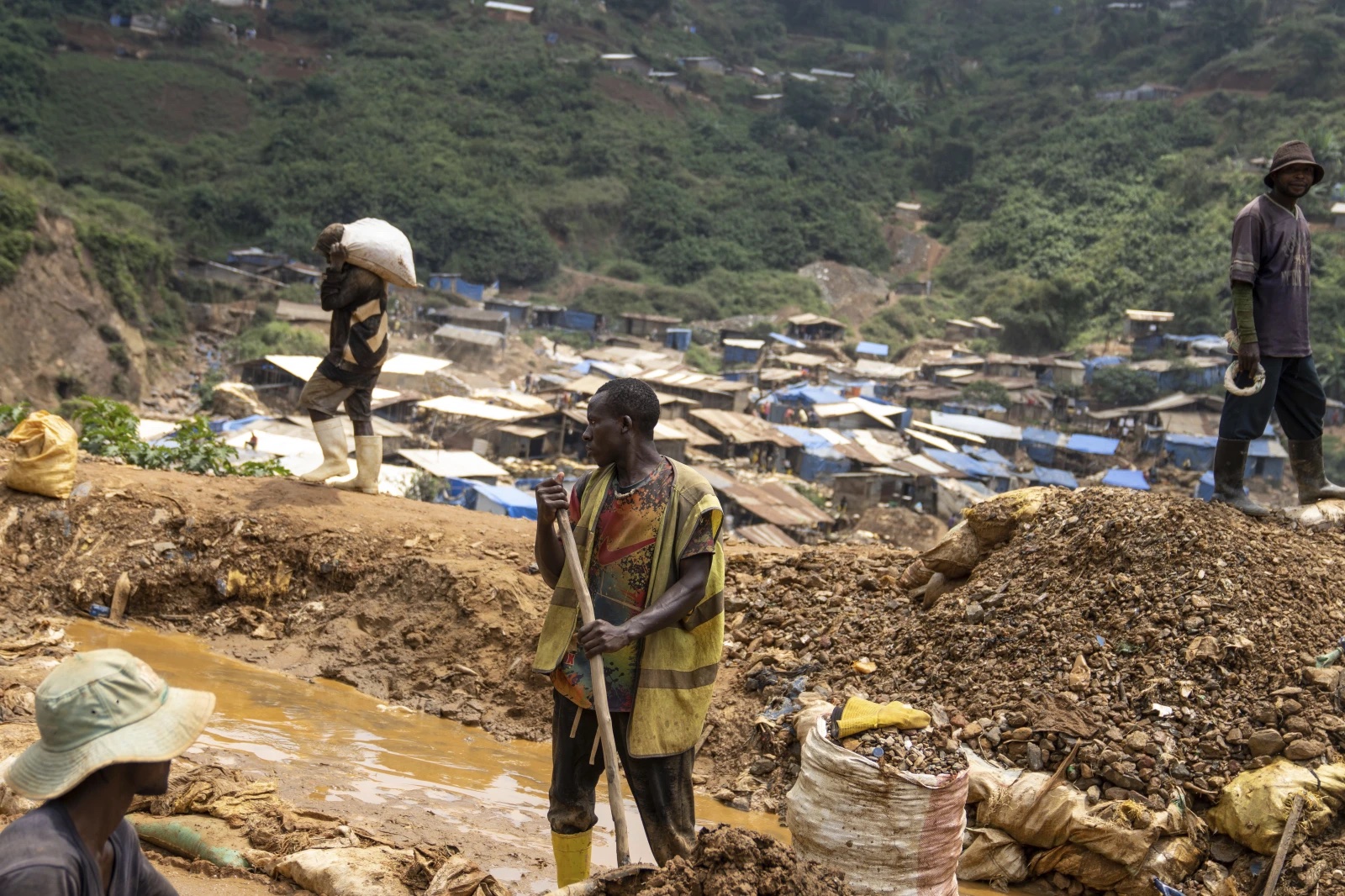
No vaccines have yet reached Kamituga, despite the town being prioritised. The remote location, coupled with seasonal rains making roads impassable, has delayed the distribution of critical supplies.
“The government needs to invest more in teaching people how to protect themselves,” Wisoba said, reflecting on her experience with the virus.
The lack of vaccines, particularly for high-risk groups like health workers and miners, has health officials alarmed.
Aid organizations working in Kamituga, such as ALIMA, are struggling to secure funding as resources dwindle.
“If support keeps waning and mpox spreads, there will be an impact on the economy. People will stop coming to the area as the epidemic takes its toll,” said Dr. Dally Muamba, ALIMA’s program coordinator.
While mpox typically presents mild symptoms, severe cases can occur, especially among children and immunocompromised individuals.
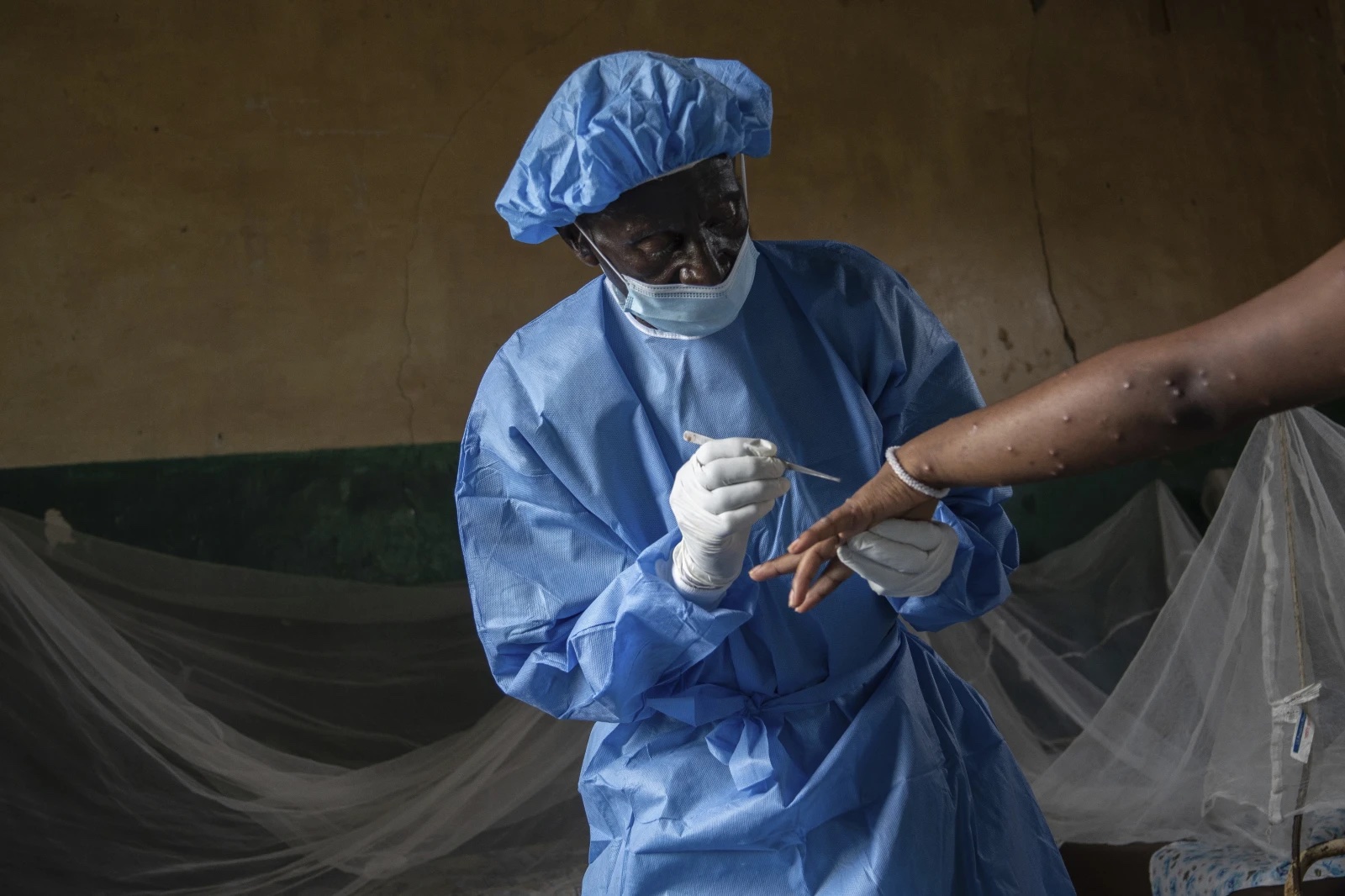
Of particular concern are pregnant women. Of 32 infected women in Kamituga since January, nearly half have lost their babies through miscarriage or stillbirth, according to hospital records.
With vaccine supplies still far below what is needed, health officials emphasize that those who recover from mpox can get infected again, making education and early detection crucial.
For parents like Diego Nyago, awareness saved his child’s life. He brought his 2-year-old son, Emile, to Kamituga hospital for circumcision when the boy developed a fever and lesions.
“I didn’t believe that children could catch this disease,” Nyago said. “Some children die quickly because their families aren’t informed.”
The crisis in Kamituga is growing, and local officials are urging swift action before the outbreak worsens.
For now, parents like Wisoba are left grappling with their grief while hoping for a solution.
“Those who die are the ones who stay at home,” Nyago said quietly.
